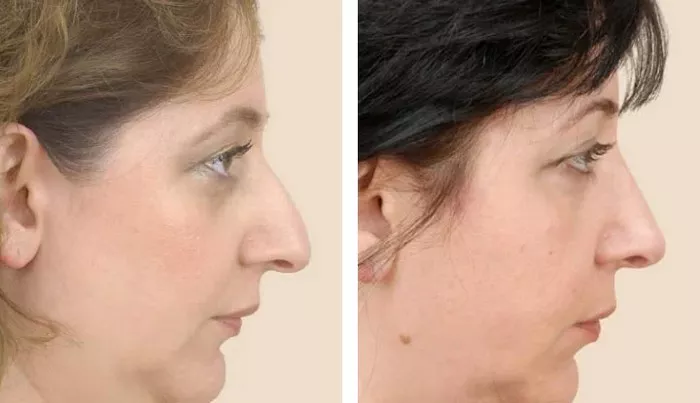Undergoing nose surgery, also known as rhinoplasty, can be a transformative experience. Whether you’ve had a functional procedure to correct breathing issues or a cosmetic one to enhance your facial features, it’s crucial to prioritize your recovery. One aspect of recovery that often goes unnoticed is the role of nutrition in promoting healing and providing comfort. Choosing the right foods after nose surgery can aid in reducing inflammation, boosting the immune system, and ensuring optimal recovery. In this article, we will explore the best foods to eat after nose surgery, offering a guide to a speedy and smooth recuperation.
1. Hydrating Foods
Proper hydration is essential for any recovery process. After nose surgery, it becomes even more critical as it helps prevent dryness and promotes healing. Opt for hydrating foods such as fruits and vegetables with high water content. Cucumber, watermelon, oranges, and strawberries are excellent choices. Additionally, herbal teas and broths can provide much-needed hydration while soothing the throat.
2. Lean Proteins
Including lean proteins in your diet post-surgery is vital for tissue repair and overall recovery. Protein aids in collagen production, which is necessary for healing incisions and reducing scar formation. Opt for lean sources of protein such as skinless chicken, turkey, fish, tofu, or legumes. These foods are not only rich in protein but also provide essential vitamins and minerals.
3. Vitamin C-Rich Foods
Vitamin C is an important nutrient for healing and boosting the immune system. It helps in collagen synthesis and has antioxidant properties that aid in reducing inflammation. Include foods like oranges, strawberries, bell peppers, kiwi, and broccoli in your diet to ensure an adequate intake of vitamin C. These foods can also help prevent post-surgical infections.
4. Omega-3 Fatty Acids
Omega-3 fatty acids are known for their anti-inflammatory properties, making them an ideal addition to your post-surgery diet. They can help reduce swelling and discomfort associated with nose surgery. Incorporate foods rich in omega-3s, such as salmon, tuna, chia seeds, flaxseeds, and walnuts. Alternatively, you can opt for fish oil supplements, but consult with your doctor before starting any new supplements.
5. Fiber-Rich Foods
To avoid constipation, which can be a common side effect of pain medications taken after surgery, it’s crucial to include fiber-rich foods in your diet. Foods such as whole grains, fruits, vegetables, legumes, and nuts are excellent sources of fiber. They can help regulate bowel movements and keep your digestive system healthy.
6. Foods with Bromelain
Bromelain is an enzyme found in pineapple that has been shown to have anti-inflammatory properties. It can help reduce swelling and promote healing after surgery. Including fresh pineapple in your diet is a delicious and natural way to incorporate bromelain. However, consult with your surgeon before consuming bromelain supplements, as they might interfere with other medications.
7. Soups and Smoothies
During the initial days following nose surgery, chewing solid foods can be uncomfortable. Opting for soups and smoothies can provide a nutritious and easy-to-consume option. Soups made with bone broth, vegetables, and lean proteins can provide essential nutrients while keeping you hydrated. Smoothies made with fruits, vegetables, and protein powders are an excellent way to incorporate various nutrients in a convenient and easily digestible form.
8. Healthy Fats
Including healthy fats in your diet can help promote skin health and reduce inflammation. Avocados, olive oil, nuts, and seeds are good sources of healthy fats. They also provide essential vitamins and minerals that aid in the healing process. However, it’s important to consume these in moderation, as they are calorie-dense.
9. Anti-Inflammatory Spices
Certain spices have potent anti-inflammatory properties and can be beneficial during the recovery phase. Turmeric, ginger, garlic, and cinnamon are excellent choices. These spices can be added to soups, smoothies, or used to season cooked foods. However, if you are on any blood-thinning medications, consult your doctor before consuming large amounts of spices like turmeric, as they can have anticoagulant effects.
10. Foods to Avoid
While it’s important to focus on the foods that promote healing after nose surgery, it’s equally important to avoid certain foods that may hinder your recovery. Avoid foods that are known to cause inflammation, such as processed and fried foods, sugary snacks, and excessive caffeine. These foods can delay the healing process and increase post-operative discomfort.
In conclusion, proper nutrition plays a crucial role in ensuring a smooth and speedy recovery after nose surgery. By incorporating hydrating foods, lean proteins, vitamin C-rich foods, omega-3 fatty acids, and fiber-rich foods, you can provide your body with the necessary nutrients to heal and reduce inflammation. Additionally, foods with bromelain, soups, smoothies, healthy fats, and anti-inflammatory spices can aid in the recovery process. Remember to consult with your surgeon or a registered dietitian to personalize your post-surgery diet plan. With the right foods, you can optimize your healing, enhance your comfort, and achieve the best possible results from your nose surgery.


